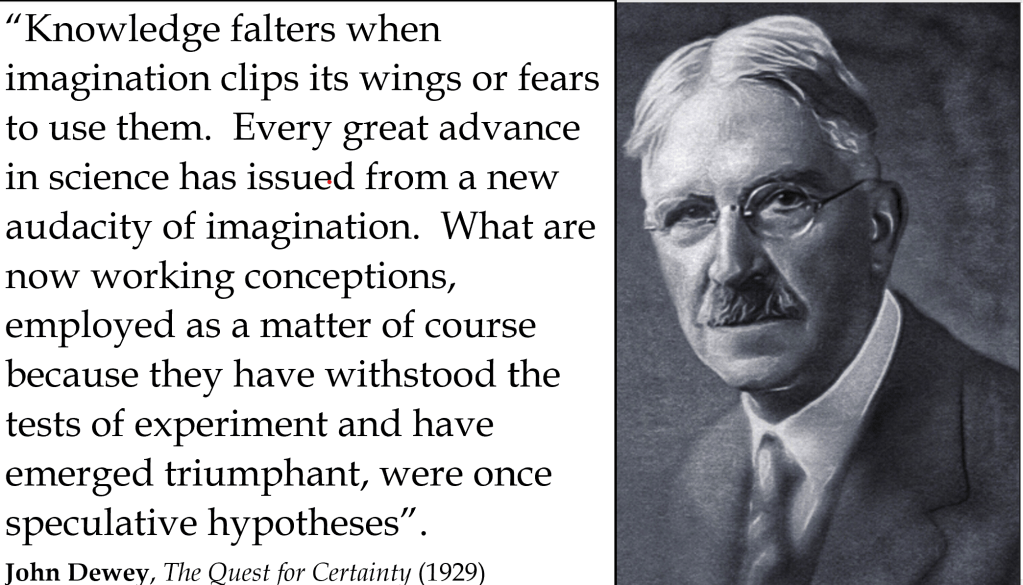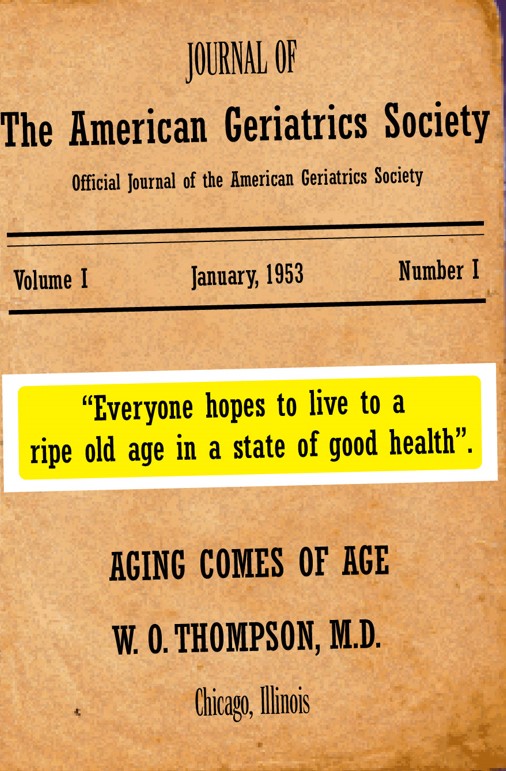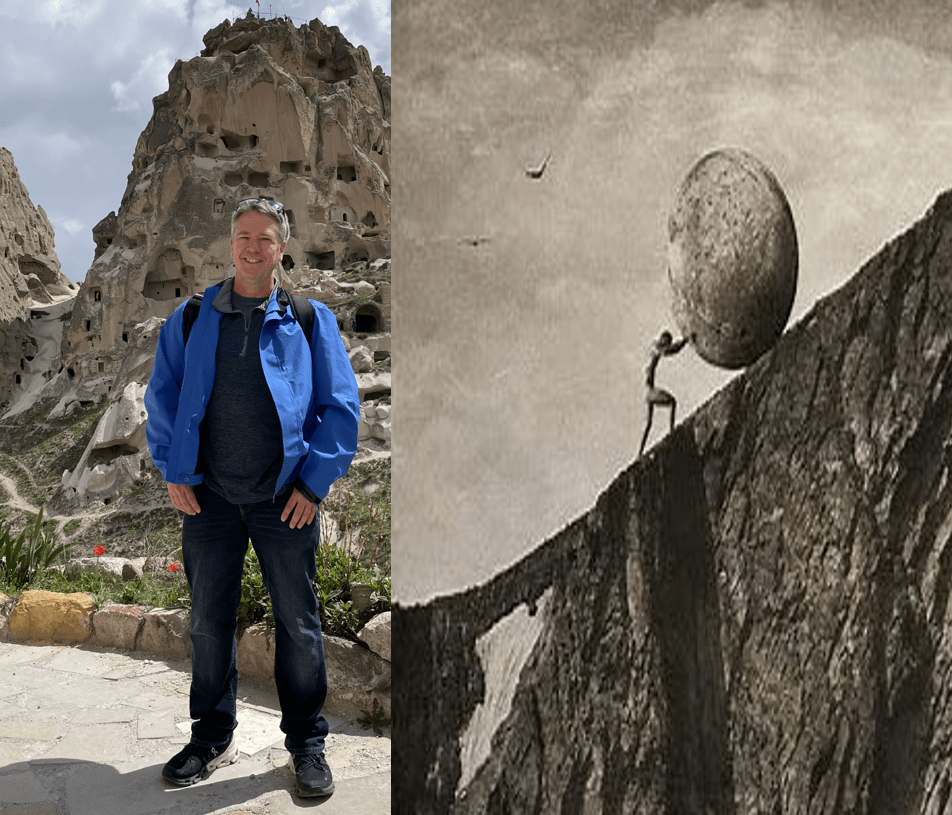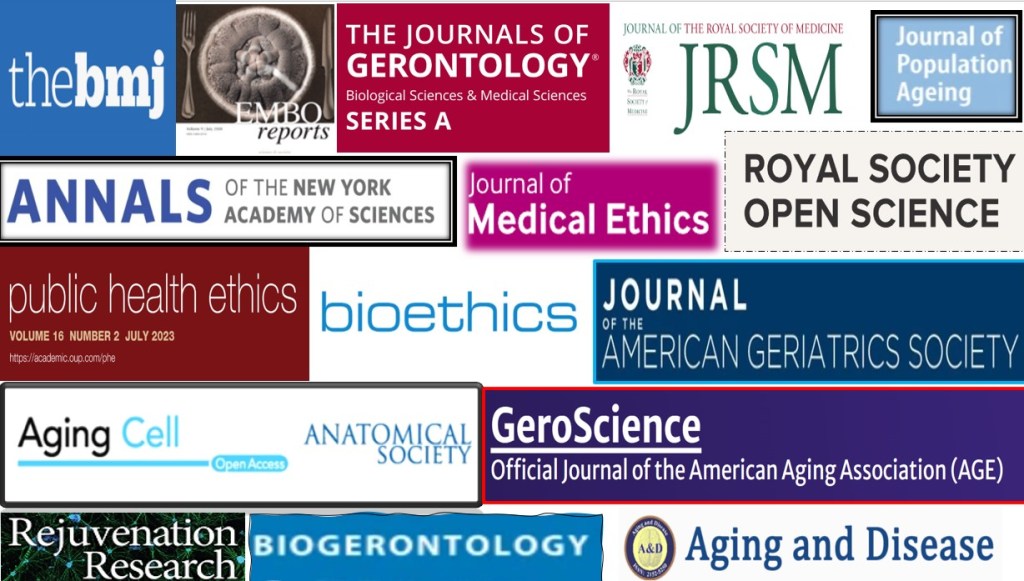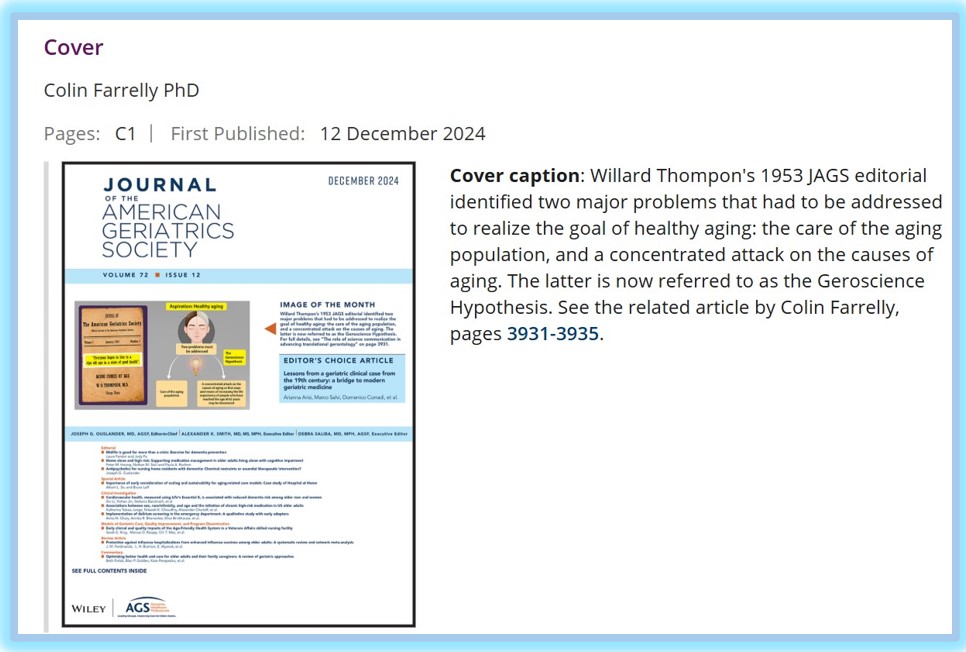
Why am I so fascinated by, and passionate about, aging and longevity science?
Over the past 20+ years of my academic career I have devoted a significant portion of my research to studying the ethical and social implications of longevity science. Admittedly my research on these issues is something of an intellectual oddity within my specialized field of political theory/political philosophy as the number of scholars working on these topics approximates the number of toes on a sloth! I aspire to help bridge the intellectual gap between science and the humanities/social science, what the British scientist and novelist CP Snow (1959) called “the two cultures“.
The world’s populations are aging, and the science of aging has demonstrated that the rate of molecular and cellular decline is malleable. My interest in these topics is fuelled by my intellectual curiosity to learn about timely and significant societal issues that are currently neglected or marginalized by scholars in the humanities and social sciences. By studying aging and longevity science I have learned about evolutionary biology, demography, the history of public health, and science policy, advocacy and communication. My research on these topics has been published by The Gerontological Society of America (4 times) , Aging Cell, JAGS (Journal of the American Geriatric Society), GeroScience, Aging and Disease, Royal Society Open Science, Rejuvenation Research (3 times), Biogerontology (twice) Nature’s EMBO Reports (twice), Public Health Ethics (twice) , BMJ, Annals of the NY Academy of Sciences, QJM, Journal of the Royal Society of Medicine, Bioethics, Public Affairs Quarterly, Journal of Population Ageing andHealthCare Ethics Committee Forum. I am currently working on a new book on the societal significance of geroscience for public health and science policy in the 21st century that builds on these journal publications.
I am a political philosopher/theorist with a science-nerd (vs science fiction) orientation to my philosophizing. I also care passionately about the quality of life people experience in late life. My interest in these topics is just a natural extension of the humanistic impulse to want humanity to experience a future with less (not more) disease, frailty and suffering. “Ageism”, “folkbiology”, misplaced egalitarian sentiments, a myopic fixation on pathology research from the aspirations of “humanistic medicine” (Herter 1910) and the “war against disease” (Winslow 1903), misunderstandings about aging research, how we classify “causes of death”, hyped-claims about radical life extension, etc. these all create obstacles to our implementing “well-ordered” science in an aging world. So I critically examine these types of concerns and issues in my research.
The aging of humanity is the most significant development of the 21st century. It is both an incredible success story (a reflection of public health’s success in reducing early and mid-life mortality) but also an unprecedented public health challenge. And for over a century geroscience has demonstrated that aging is not immutable. From studies on CR in rodents in the 1930s, to the era of genetic manipulation in aging in the 1980s, to today’s era of pharmacological and pharmaceutical interventions in aging (Richardson, 2021), I believe geroscience will pave the path forward towards a new model of public health that focuses on “Rate (of aging) Control” (Comfort, 1969) versus the “War Against Disease” (Winslow 1903) paradigm.
My interest in the ethics of longevity science grew out of a more expansive research enterprise I began in the year 2000 to explore the ethical and social implications of the genetic revolution. That research taught me about the importance of ensuring my research was both interdisciplinary and informed by the actual science (vs abstract moral analyses or hyper-inflated accounts of what the science might achieve).
Below is a list of my major publications on the topics of aging and geroscience, in journals in medicine, science, philosophy and bioethics over the past 17+ years:
Colin Farrelly, “The Geroscience Perspective on One Health” (forthcoming) Bioscience
Colin Farrelly, “Wisdom-inquiry science is essential for healthy longevity”. Age and Ageing. 2025 Mar 28;54(4):afaf073. https://doi.org/10.1093/ageing/afaf073
Colin Farrelly, “Climate Geroscience: The Case for “Wisdom-Inquiry” Science” Biology Letters 20: 20240426. https://doi.org/10.1098/rsbl.2024.0426
Colin Farrelly, “The Role of Science Communication in Advancing Translational Gerontology”, J Am Geriatr Soc. 2024 Dec;72(12):3931-3935. https://doi.org/10.1111/jgs.19098
Hajj-Boutros G, Faust A, Muscedere J… Farrelly C… “Navigating the Landscape of Translational Geroscience in Canada: A Comprehensive Evaluation of Current Progress and Future Directions”. J Gerontol A Biol Sci Med Sci. (2024);1;79(7):glae069.
Colin Farrelly, ““Imagination and Idealism after the COVID-19 Pandemic: The Science of Healthy Aging” Royal Society Open Science 2024 Jan 31;11(1):231102. doi: 10.1098/rsos.231102
Colin Farrelly, “Climate Science and Geroscience: Oppositional or Complementary?” Aging Cell (2023);22(8):e13890. doi: 10.1111/acel.13890.
Colin Farrelly, “Post-Protean” Public Health and the Geroscience Hypothesis” Aging and Disease 2024 Apr 1;15(2):449-458. doi: 10.14336/AD.2023.0721.
Colin Farrelly, “From Sanitation Science to Geroscience: Public Health Must Transcend ‘Folkbiology’ “Public Health Ethics July 2023;16(2): 165 174, https://doi.org/10.1093/phe/phad013
Colin Farrelly, “Framing Longevity Science and an “Aging Enhancement”” in The Routledge Handbook of the Ethics of Human Enhancement (edited by Fabrice Jotterand, Marcello Ienca) (Routledge: 2023).
Colin Farrelly, “Geroscience and Public Health’s Plastic “Ecology of Ideas”.” The journals of gerontology. Series A, Biological sciences and medical sciences, glad065. 23 Feb. 2023, doi:10.1093/gerona/glad065
Colin Farrelly, “Longevity Science and Women’s Health and Wellbeing.” Journal of population ageing, 1-20. 30 Jan. 2023, doi:10.1007/s12062-023-09411-y
Colin Farrelly, “Aging, Equality and the Human Healthspan.” HEC forum : an interdisciplinary journal on hospitals’ ethical and legal issues, 1–19. 8 Nov. 2022, doi:10.1007/s10730-022-09499-3
Colin Farrelly, “Idealism and Imagination in the Medical Sciences of an Ageing World” Journal of Medical Ethics, 49(4) (2023): 271-274. doi:10.1136/medethics-2022-108129
Colin Farrelly, “Responsible Biology, Aging Populations and the 50th Anniversary of the “War on Cancer”” Biogerontology 2021 Aug;22(4):429-444.
Colin Farrelly, “How Should We Theorize About Justice in the Genomic Era?” Politics and the Life Sciences 40(1) (2021): 106-25.
Colin Farrelly, ”50 Years of the War on Cancer: Lessons for Public Health and Geroscience” Geroscience. 2021 Jun;43(3):1229-1235.
Colin Farrelly, “COVID-19, Biogerontology and the Ageing of Humanity” The Journals of Gerontology. Series A, Biological Sciences and Medical Sciences, 2021, 76(8), e92–e96.
““Positive Biology” and Well-Ordered Science” in Measuring Well-Being: Interdisciplinary Perspectives from the Social Sciences and the Humanities (edited by Matthew Lee, Laura Kubzansky, and Tyler VanderWeele) (Oxford University Press, forthcoming in 2020).
Colin Farrelly, “Aging, Geroscience and Freedom” Rejuvenation Research 22(2) 2019: 163-170.
Colin Farrelly, Biologically Modified Justice (Cambridge University Press, 2016).
Colin Farrelly, “Justice and Life Extension” in End-of-Life Ethics (edited by John Davis) (New York, NY: Routledge Publishing, 2016).
Colin Farrelly, “Empirical Ethics and the Duty to Extend the Biological Warranty Period” Social Philosophy and Policy 30 (2013): 480-503.
Colin Farrelly, “Why the NIH Should Create an Institute of Positive Biology” Journal of the Royal Society of Medicine 105 (2012): 412-15.
Colin Farrelly, “Biogerontology and the Intellectual Virtues” Journal of Gerontology: Biological Sciences 67(7) (2012): 734-46.
Colin Farrelly, “”Positive Biology” as a New Paradigm for the Medical Sciences” Nature’s EMBO Reports 13(2) (2012): 186-88.
Colin Farrelly, “Global Aging, Well-Ordered Science and Prospection” Rejuvenation Research 13(5) (2010):607-12.
Colin Farrelly, “Equality and the Duty to Retard Human Aging” Bioethics 24(8) (2010): 384-94.
Colin Farrelly, “Why Aging Research?” Annals of the New York Academy of Sciences 1197 (2010): 1–8.
Colin Farrelly, “Mind the Gap: Senescence and Beneficence” Public Affairs Quarterly 24(2) (2010): 115-30.
Colin Farrelly, “Framing the Inborn Aging Process and Longevity Science” Biogerontology 11(3) (2010): 377-85.
Colin Farrelly, “Towards a More Inclusive Vision of the Medical Sciences” QJM: An International Journal of Medicine 102 (2009): 579-582.
Colin Farrelly, “Aging Research, Priorities and Aggregation” Public Health Ethics 1(3) (2008): 258-67.
Colin Farrelly, “Has the Time Come to Take on Time Itself?” British Medical Journal 337 (2008):147-48.
Colin Farrelly, “3 Wishes” Journal of Evolution and Technology 20(1) (2008): 23-28.
Colin Farrelly, “A Tale of Two Strategies: The Moral Imperative to Tackle Ageing” Nature’s EMBO Reports 9(7) (2008): 592-95.
Colin Farrelly, “Sufficiency, Justice and the Pursuit of Health- Extension” Rejuvenation Research Vol. 10(4), 2007, pp. 513-20.
